NATURAL FEED ADDITIVES for all types of farm animals, fish and poultry
How often do you encounter the problem of ineffective feed additives?
«This is not feed, it is an investment in the sustainable future of your farm»
A unique and multifunctional product that can significantly increase productivity and product quality in various agricultural sectors. Its use not only improves the health of animals and birds, but also contributes to the sustainable development of agricultural production, while maintaining environmental safety.
The biodegradable product does not cause resistance to pathogens, unlike antibiotics and coccidiostatics.
THE BENEFITS OF FARMAVIO PHYTOBIOTICS - Eco Shield!
Phytobiotic from grape seeds contains vitamins C, A, B1, B2, B5, E, trace elements, fatty acids, tannins.
Phytobiotic FARMAVIO is a feed additive containing grape seed and skin extract, which acts as an antioxidant. The main action of antioxidants is the neutralization of free radicals to protect healthy cells from damage. Phytobiotic has not only high antioxidant activity, but also helps other antioxidants (vitamins E and C) to restore their structure, thereby reducing their consumption and increasing the availability of vitamins E and C for other biological processes in the body (participation in reproductive function, etc.).
The advantages are commercial.
Reducing veterinary costs:
- Increased productivity of animals - Healthy animals and poultry are less likely to get sick, and treatment costs are reduced.
- Case reduction;
- Reduces operational risks — fewer illnesses = more stable cash flow.
Optimizing the diet:
- Using flour allows you to balance the diet, providing the necessary nutrients without increasing the volume of feeding and reducing the cost of expensive supplements.
- Increased feed conversion due to improved digestion.
Increased profitability:
- Improved product quality (milk, meat, eggs) allows you to set a higher price;
- Young individuals who receive flour in their diet show faster growth and better development, which has a positive effect on the productivity of poultry farms and others - shortening the production cycle;
- Increases the profitability of assets — you get more profit from the same areas.
«Don't feed animals — invest in their health and your reputation»
ESG is an advantage:
- Gain an advantage in export markets;
- ESG-goals, standards;
- ESG rating;
- ESG grants, preferential loans - You can receive a government subsidy for the transition to eco-technologies.
«Become a pioneer of the eco-revolution in agribusiness»
Antibiotics have been used in animal feed for decades, and now these antibiotics are entering human food, raising growing concerns about antibiotic resistance.
Currently, priorities in food production are changing. Key indicators such as productivity and efficiency remain critically important. However, recently, more and more attention has been paid to such factors as sustainable development, animal health and welfare, and the quality of animal products.
Continuous improvement in animal feeding is needed to address current and future challenges, such as replacing antibiotics for preventive purposes with phytobiotics, increasing the incidence of more aggressive diseases, and increasing attention to more sustainable agriculture, where our industry plays a crucial role in improving the habitat.
Phytobiotic from grape seed and skin is a carrier of a wide range of valuable grape polyphenols. The composition of polyphenols contains flavonoid monomers and non-flavonoid polyphenols, as well as their derivatives.
The experimental data indicate the high quality of feed additives from grape seeds and skins, as a vitamin supplement for all types of animals and poultry. The relatively high content of critical amino acids – lysine and tryptophan, which are contained in insufficient amounts in barley and corn grains, caratinoids, the presence of valuable micro and macronutrients, nectin substances - determine their biological usefulness as feed for all types of farm animals, fish and poultry.
vitamin supplement with broad-spectrum antioxidants for the preparation of feed and feed raw materials
functional feeds or premixes, as well as Bioactive feeds: The use of antioxidants to increase the shelf life of meat and milk.
EFFECTIVE CONTROL OF COCCIDIOSIS and improvement of animal health
a natural supplement to replace synthetic coccidiostatics and antibiotics
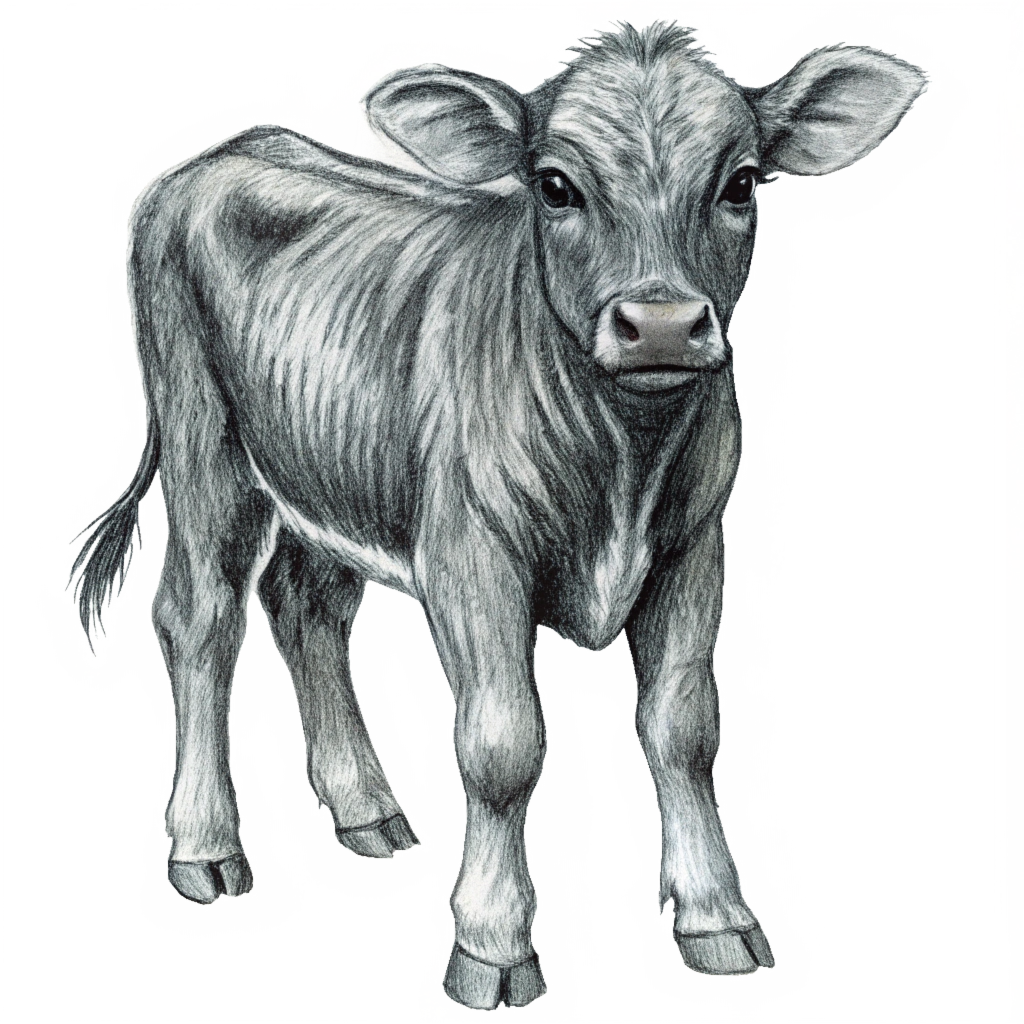
from 2% to 4% per 1 ton of feed
vitamin feed additives for cattle
INGREDIENTS: Powder from grape skins and seeds of dark and white grape varieties.
MAIN EFFECTS
-Anti-stress - productivity does not decrease in hot climates;
-Increases the fat content in milk by up to 3%;
-Increases milk yield and improves its quality (increases the fat content in milk, the content of nutrients);
-Compensates for the lack of calories in the diet of cattle
-Healthy viable young animals;
- Reducing the risk of metabolic diseases (Prevention of ketosis);
- Udder health: The antibacterial properties of flour reduce the risk of mastitis and other udder diseases.;
- Grape polyphenols increase the antioxidant status of cow's milk;
- Strengthen the immune system: Antioxidants reduce oxidative stress, increase resistance to infections.
mechanism of action
-Polyphenols in powder exhibit anti-inflammatory properties, which is especially important in the initial periods of animal life, when they are exposed to various stresses;
-Grape seed powder helps to reduce the level of free radicals in the body of calves, which helps to maintain their health by protecting cells from oxidative stress.
advantages
-Helps strengthen the rumen microbiota, improving digestion and nutrient absorption in cattle;
-Reduces oxidative stress and supports the health of animal cells;
-It has powerful antioxidant properties superior to many other drugs.
- Improving the quality of meat: Improving the taste: Antioxidants and trace elements contribute to improving the texture and taste of meat, making it more attractive to consumers;
- Healthy meat: Helps to lower cholesterol levels in meat, making it more beneficial to human health.
The use of a phytobiotic or extract from grape skins and seeds against inflammatory processes and oxidative stress in cattle
Grape seed extract, rich in polyphenols, is an effective remedy for combating inflammatory processes and oxidative stress in calves. Studies show that this plant compound has powerful antioxidant properties, contributing to the improvement of the overall health of young cattle.
One of the key points is the ability of grape seed extract to reduce the level of inflammation in the body of calves. The polyphenols in the extract exhibit anti-inflammatory properties, which is especially important in the initial periods of animal life, when they are exposed to various stresses.
Another important aspect is the ability of polyphenols to protect cells from oxidative stress. This type of stress can occur as a result of adverse conditions of detention, malnutrition or diseases. Grape seed extract helps to reduce the level of free radicals in the body of calves, which helps to maintain their health.
The addition of grape seed extract to the calves' diet can be especially useful in industrial cattle breeding, where it is important to ensure optimal conditions for the growth and development of animals. It is important to monitor the dosage and consult with a veterinarian for optimal results.
Thus, grape seed extract is a promising tool for mitigating inflammatory processes and combating oxidative stress in calves, contributing to maintaining their overall health at an early age.
- GASTROINTESTINAL HEALTH - Phytobiotics help strengthen the rumen microbiota by improving digestion and nutrient absorption in cattle.
- REDUCTION OF INFLAMMATION - Active substances of plant origin in phytobiotics reduce inflammatory processes in the body of cattle, contributing to overall health.
- ANTIOXIDANT PROTECTION AND IMMUNITY - Phytobiotics have antioxidant properties, helping to reduce oxidative stress and maintain the health of animal cells. The immune system is strengthened, which contributes to resistance to various infections.
- ECOLOGY - The use of phytobiotics contributes to the elimination of the preventive use of antibiotics in animal husbandry.
Grape seed extract as a feed additive improves growth rates, scar fermentation and immunity of well-fed bulls. The results obtained during the research show that grape seed extract as a feed additive led to a significant improvement in growth rates, fermentation in the rumen, antioxidant capacity and immunity of weaned calves of meat hybrids.
Phytobiotic FARMAVIO - is a feed additive containing grape seed and skin extract, which acts as an antioxidant. The main action of antioxidants is the neutralization of free radicals to protect healthy cells from damage. Phytobiotic has not only high antioxidant activity, but also helps other antioxidants (vitamins E and C) to restore their structure, thereby reducing their consumption and increasing the availability of vitamins E and C for other biological processes in the body (participation in reproductive function, etc.).
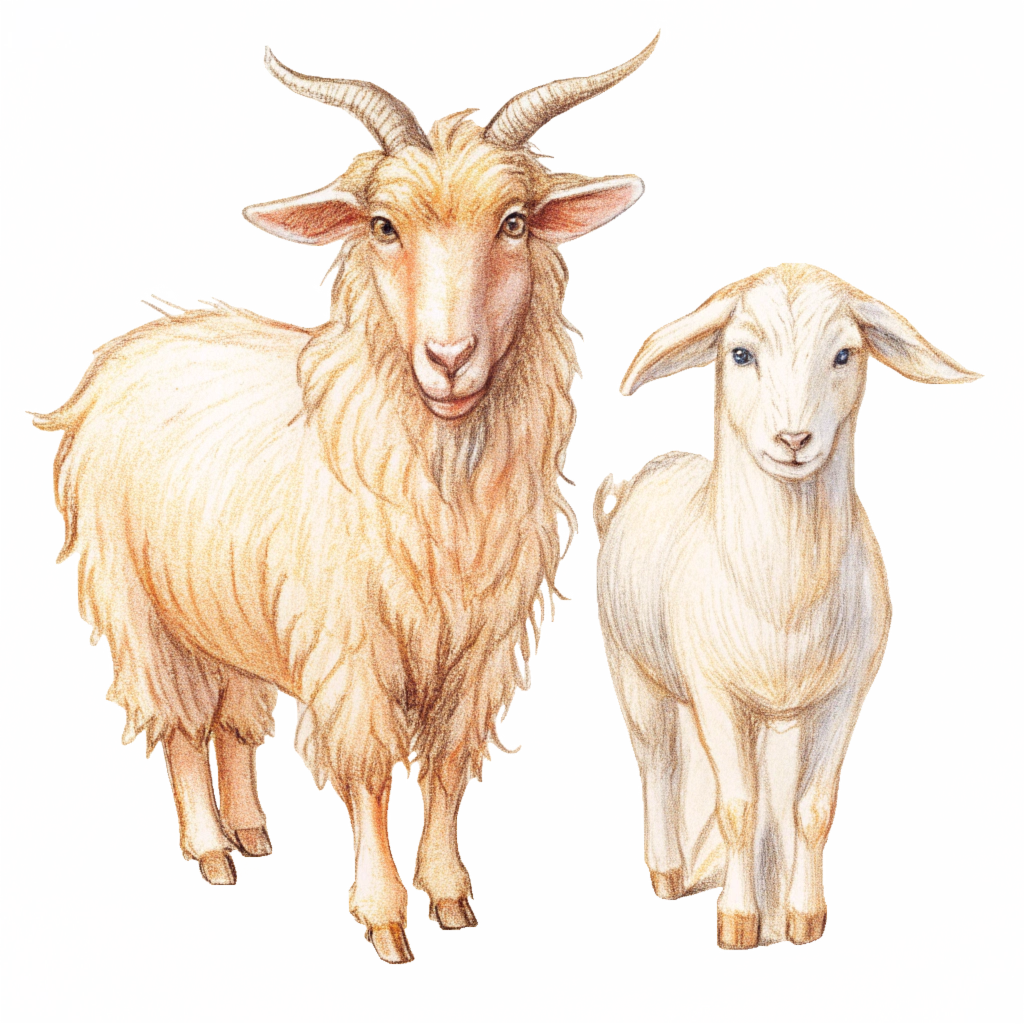
up to 3% per 1 ton of feed.
vitamin feed additives for goats and sheep
INGREDIENTS: Powder from grape skins and seeds of dark and white grape varieties.
MAIN EFFECTS
-Mineralization of the skeleton, increase in body weight and improve the quality of the rune;
-Increases the nutritional value of milk and meat, optimizes digestion and protects against the negative effects of harmful substances;
-Reduction of nervous disorders, increased resistance and reproductive functions;
-Increased milk fat content.
- Fatty acids improve the quality of wool (shine, density);
- The yield of goat's milk increases by 6-8%.
mechanism of action
Phytobiotic from grape seed has an immunomodulatory effect on sheep and goats, activating cytokine synthesis and improving antioxidant protection due to high levels of polyphenols. It helps to improve the intestinal microbiota and reduce inflammatory processes in the gastrointestinal tract.
advantages
- It has excellent antioxidant and anti-inflammatory properties due
to its high content of polyphenols, which makes
it more effective compared to synthetic drugs;
- Natural origin reduces the risk of side effects and improves the bioavailability of active ingredients, ensuring optimal absorption in the body of animals.
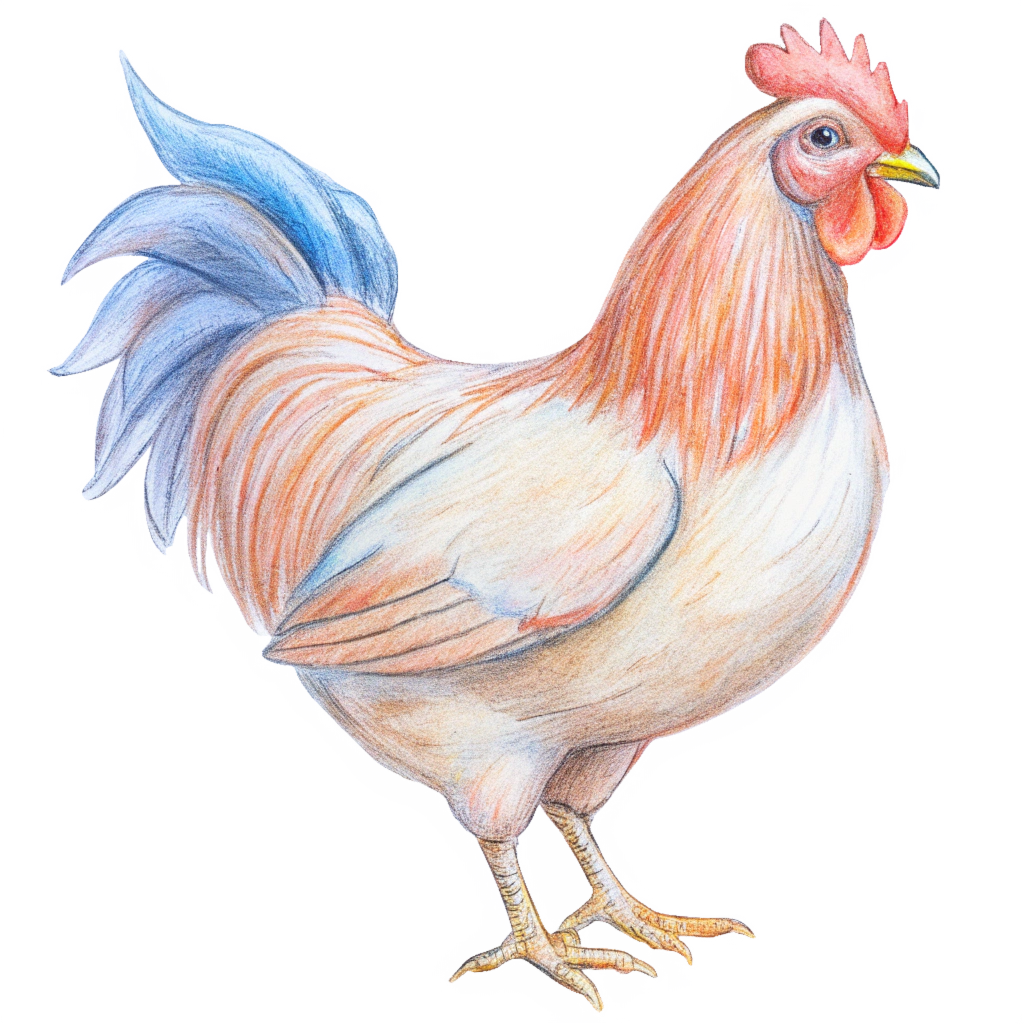
1% - 2% per 1 ton of feed.
vitamin feed additives for poultry
INGREDIENTS: Powder from grape skins and seeds of dark and white grape varieties.
MAIN EFFECTS
- Increase in live weight, safety of young animals
- Antistress - improvement of livestock safety by 5.72%
- An increase in the accumulation of vitamin C in the liver by 6-11%, in the kidneys by 4.8-12.3% relative to the control;
- Reduced consumption of the main feed (better digestion, weldability of substances), i.e. savings on feed up to 5%
- Increased egg production
- A natural, non-hormonal growth stimulant
- Prevention of coccidiosis by strengthening
the intestinal walls
- Protection against parasites: The antibacterial and antifungal properties of flour help prevent the development of parasitic infections
mechanism of action
- Polyphenols contained in grape powder have high antioxidant activity and neutralize free radicals;
- Polyphenols help vitamins C and E to restore their structure, increasing the availability of these vitamins for other biological processes in the body of animals
advantages
- Highly effective in small dosages;
- A completely herbal preparation of natural origin;
- Stimulating the growth of feathers: The rich composition of flour improves the condition of feathers and skin of birds, which reduces the risk of injury and disease.
- Laying hens:
- The addition of flour increases egg production, polyphenols improve reproductive function;
- Vitamin E improves the quality of eggs (shell strength, yolk). Making them more useful to humans. Eggs become more nutritious due to the increased content of vitamins, minerals and healthy fats.;
- Reduces the level of cholesterol in eggs.
- Broilers:
- Growth acceleration: +12% by weight due to improved feed absorption;
- Reduces stress: helps birds to tolerate transportation and changes in housing conditions more easily.
- Chickens:
- Strengthening of poultry immunity due to antioxidants: survival rate increases by 5-7%;
- Antioxidants: Polyphenols protect chickens from oxidative stress, which is especially important in the first weeks of life;
- Prevention of diarrhea: The probiotic properties of flour support the health of the gastrointestinal tract;
- Strengthening the skeleton: promotes proper bone development;
- Rapid development: Young individuals who receive flour in their diet show faster growth and better development, which has a positive effect on the productivity of poultry farms.
Phytobiotics from grape seed in poultry farming
The development of these drugs of domestic production and the determination of the effectiveness of their use in poultry feeding is an important task within the framework of the Strategy for Preventing the Spread of Antimicrobial Resistance, approved by Decree No. 2045-r of the Government of the Russian Federation dated September 25, 2017.
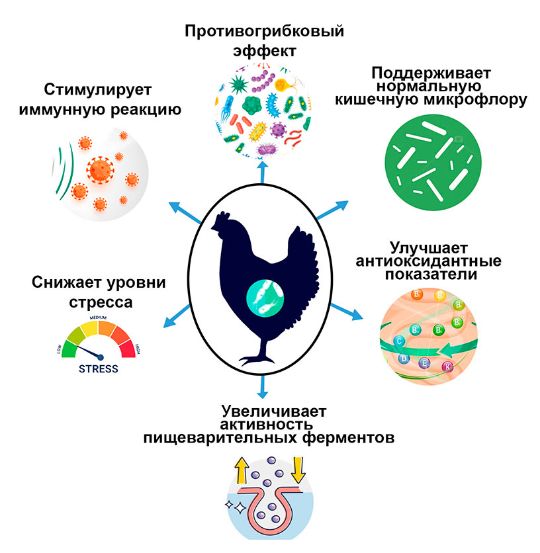
Prevention of coccidiosis with phytobiotics from grape seed
Phytobiotics from grape seed can play an important role in the prevention of coccidiosis in pets. Grape seeds are rich in natural compounds such as polyphenols, tannins and antioxidants, which have powerful antiparasitic properties.
The polyphenols contained in grape seeds manifest themselves as effective agents in the fight against coccidia, affecting various stages of their life cycle. These substances can help reduce the parasitic load and strengthen the immune system of animals.
Tannins, also present in grape seed, have properties that help prevent the penetration of coccidia into intestinal cells. This can reduce the likelihood of developing the disease and improve the overall health of the animals.
Production experience at one of the sites of a large agro-industrial holding in the Belgorod region in 2017 showed that phytobiotics are sufficiently effective in the treatment of coccidiosis. According to the data provided by Selivanova Yu.A. (Mozgovenko M.A., Bespalova N.S. COCCIDIOSIS OF BIRDS. TREATMENT AND PREVENTION // Scientific review. Pedagogical sciences. – 2019. – No. 2-4. – pp. 23-26;), phytobiotic is able to replace modern coccidiostatics without loss of poultry productivity. It is one of the most chemically complex biological complexes for food purposes.
Phytochemicals of grape seed and skin have shown antiparasitic and antibacterial activity against E. tenella and C. perfringens, at higher phytochemical doses, their positive effect in studies on coccidiosis was due to a phytochemically-induced mitigation of the body's reactions to the disease, including reducing inflammation, improving intestinal function and facilitating muscle growth. Their combined effects on intestinal health significantly reduced intestinal damage caused by parasites after infection with coccidiosis.
The use of grape seed phytobiotics in the diet of pets may be a promising method for the natural prevention of coccidiosis, offering a safe and effective solution in maintaining animal health.

3% per 1 ton of feed.
vitamin feed additives for pigs
INGREDIENTS: Powder from grape skins and seeds of dark and white grape varieties.
MAIN EFFECTS
- Natural growth stimulants to increase daily growth and reduce the need for feed.
- Increase the number of piglets and increase their survival rate.
- Natural antioxidant as a result - maintenance of intestinal integrity, protection from infections.
- Gastrointestinal health:
1. Fiber prevents constipation, improves intestinal microflora. 2. Reduce diarrhea associated with bacterial infections. Polyphenols block bacterial adhesion to cells, modulate the intestinal microbiota;
- Strengthening of bone tissue;
- Meat quality: Antioxidants slow down the oxidation of fats, increasing the shelf life of meat by 10-15%.
mechanism of action
- The anti-inflammatory effect of polyphenols is associated with the inhibition of pro-inflammatory cytokines and enzymes such as cyclooxygenase and lipoxygenase, which reduces inflammatory processes in the body;
- The immunomodulatory properties of polyphenols are expressed in enhancing the immune response through the activation of macrophages, lymphocytes and other immune cells, which increases the overall resistance of pigs to infections and diseases.
advantages
- Reduction of veterinary costs by up to 30%, which is a significant economic gain;
- The increase in the average daily growth can reach 15-20% of the norm, depending on the growing period;
- Reduces piglet mortality by 1.81%, feed conversion by 0.8%.
The use of phytobiotics from grape seed and skin in pig farming
Studies show that the inclusion of phytobiotics from grape seeds and skins in the diet of pigs leads to a noticeable increase in productivity. For example, the survival rate when using these phytobiotics can increase up to 95%, which is a significant improvement over traditional breeding methods.
The analysis of digestive efficiency also reveals positive results. Pigs consuming a diet with phytobiotics from grape seeds and skins show increased weight gain, which ultimately affects the economic efficiency of pig farming. The increase in the average daily growth can reach 15-20%, depending on the growing period.
Equally important is the improvement of pig health under the influence of phytobiotics. Reducing the incidence of diseases and reducing the need for medicines leads to a significant reduction in the cost of veterinary care. Research indicates a reduction in veterinary costs by up to 30%, which is a significant economic benefit for pig farmers.
Moreover, the analysis of statistics shows that the use of phytobiotics from grape seeds and skins reduces the impact on the environment. Fewer medicines used and improved pig digestion reduce soil and water pollution, which meets modern requirements for environmental sustainability in agriculture.
In production experiments in northern Spain on pigs of the Pietren breed, it was found that in experimental groups that were injected with phytobiotics from grape seed and skin in a dose of 2 kg /t of feed, the mortality of piglets during the fattening period was 0.9%, whereas in the experimental group, which was injected with 99% benzoic acid in the amount of 5 kg / ton of feed, the death of piglets was 2.7%. The feed conversion in the experimental group with phytobiotic was 9.44% less than in the group with benzoic acid.
In another production experiment on fattening piglets of Pietren in the amount of 1,500 heads per group, it was found that the addition of a phytobiotic from grape seed and skin at a dose of 2 kg /t of feed reduces piglet mortality by 1.81%, feed conversion by 0.8%, while the average daily live weight gain increased by 3.2%.
Numerous experiments have been conducted on the territory of Italy, which show that the addition of phytobiotics from grape seed and skin in a dose of 2 kg/t in the pre—start and start period, 1.5 kg/t in the grover and 1 kg/t in the finishing period makes it possible to increase safety by 1.5-3.4%, average daily live weight gains — by 4.6-9.8% and reduce feed conversion by 2.5-4.7%.
Thus, the use of phytobiotics from grape seed and skin in pig breeding and rearing demonstrates not only noticeable improvements in animal care, but also in the economic and environmental sustainability of pig farming.
- IMMUNITY - The high content of antioxidants helps strengthen the immune system of pigs.
- GROWTH AND DEVELOPMENT - Contains beneficial trace elements such as iron and zinc, which affect the growth and development of pigs. It can also have a positive effect on the quality of meat, making it more nutritious.
- SKIN AND COAT - Improvement of the general condition of pig skin and coat due to the presence of unsaturated fatty acids in phytobiotics.
- ECOLOGY - The use of phytobiotics from grape seeds and skins in the diet of pigs can reduce the overall dependence on chemical additives, which is important for those who prefer natural and organic methods in pig farming.

2% per 1 ton of feed.
vitamin feed additives for rabbits
INGREDIENTS: Powder from grape skins and seeds of dark and white grape varieties.
MAIN EFFECTS
- Provides an increase in all types of productivity by improving consumption, digestibility, digestibility of feed, normalization of intestinal microflora and homeostasis in general;
- Prevents hypovitaminosis,
normalizes metabolism and energy;
- Enhances immunity and stress resistance;
- Protection against parasites: The antibacterial and antifungal properties of flour help prevent the development of parasitic infections.
mechanism of action
In tropical and subtropical regions, rabbits face heat stress, which has a negative impact on their homeostasis, as well as affects their growth rate and productivity. Phytobiotic from grape seed has an antioxidant effect on rabbits due to the high content of polyphenols. It helps to modulate the intestinal microbiota and reduce inflammatory processes in the gastrointestinal tract due to its anti-inflammatory properties.
advantages
- Natural protection against heat stress to maintain performance, carcass characteristics and antioxidant status;
- Improvement of growth indicators, reduction of mortality;
- Prevention of coccidiosis.
The effect of grape seed extract on the growth, meat characteristics and antioxidant status of rabbits during heat stress.
Grape seeds are rich in polyphenols such as phenolic acid, anthocyanins and flavonoids, including monomeric phenolic compounds such as (+)-catechins, (-)-epicatechin and (-)-epicatechin-3-O-flattened dimeric, trimeric procyanidins and turmeric procyanidins. Grape seed proanthocyanidin extract is a rich source of polyphenols.
Extracts obtained from grape seeds and pomace were used as natural antioxidants and had a positive effect on the productivity of rabbits.
Experiment
The present study was aimed at studying the effect of various levels of dietary supplements of grape seed extract on growth indicators, carcass characteristics and antioxidant status of rabbits under thermal stress (temperature and humidity index 87.5-93.5).
Weaned male New Zealand white rabbits (NZW) aged about 6 weeks (n = 144, average body weight 705 g) were randomly assigned to four dietary groups. The control group was fed a basic diet without grape seed extract (EVK); the experimental groups received a basal diet with 100, 200 and 300 mg EVK / kg (groups 100 EVK, 200 EVK and EVK EGE, respectively). The experimental period lasted 8 weeks.
Compared to other groups, the rabbits of the 300 EWC group had the best body weight gain and feed conversion rate, as well as the lowest mortality. The dietary EVC improved the carcass weight, the percentage of meat, and the total number of inedible parts decreased (p<0.05) compared with the control group. In the groups of 200 EVCs and EVCs, total plasma protein, albumin and globulin were increased (p ≤ 0.05). Plasma concentrations of total lipids, total cholesterol, triglycerides and low-density lipoproteins are reduced.
The addition of EGE increased the antioxidant enzymes of rabbits (superoxide dismutase, catalase, glutathione peroxidase, glutathione transferase) and the total antioxidant capacity of the blood (p<0.05). However, the content of malondialdehyde decreased (p ≤ 0.001) with an increase in the level of EVC.
Conclusions
The results of this study showed that dietary supplements of grape seed extract and skin in doses of 100, 200, 300 mg/kg improved growth rates, antioxidant status and reduced rabbit mortality. Moreover, EVC has a high antioxidant capacity and is an effective free radical. EVCs were useful as a natural defense against heat stress to maintain performance, carcass characteristics and antioxidant status, and could also reduce the negative effects of heat stress in rabbits. In rabbits, the best results were obtained with the addition of 300 mg GSE/kg of diet.
Translation of the article: Effects of grape seed extract as a natural antioxidant on growth performance, carcass characteristics and antioxidant status of rabbits during heat stress
Fawzia A. Hassan, Khalid M. Mahrose & Mohammed M. Basyony To cite this article: Fawzia A. Hassan, Khalid M. Mahrose & Mohammed M. Basyony (2016): Effects of grape seed extract as a natural antioxidant on growth performance, carcass characteristics and antioxidant status of rabbits during heat stress, Archives of Animal Nutrition, DOI: 10.1080/1745039X.2016.1139609
To link to this article: http://dx.doi.org/10.1080/1745039X.2016.1139609
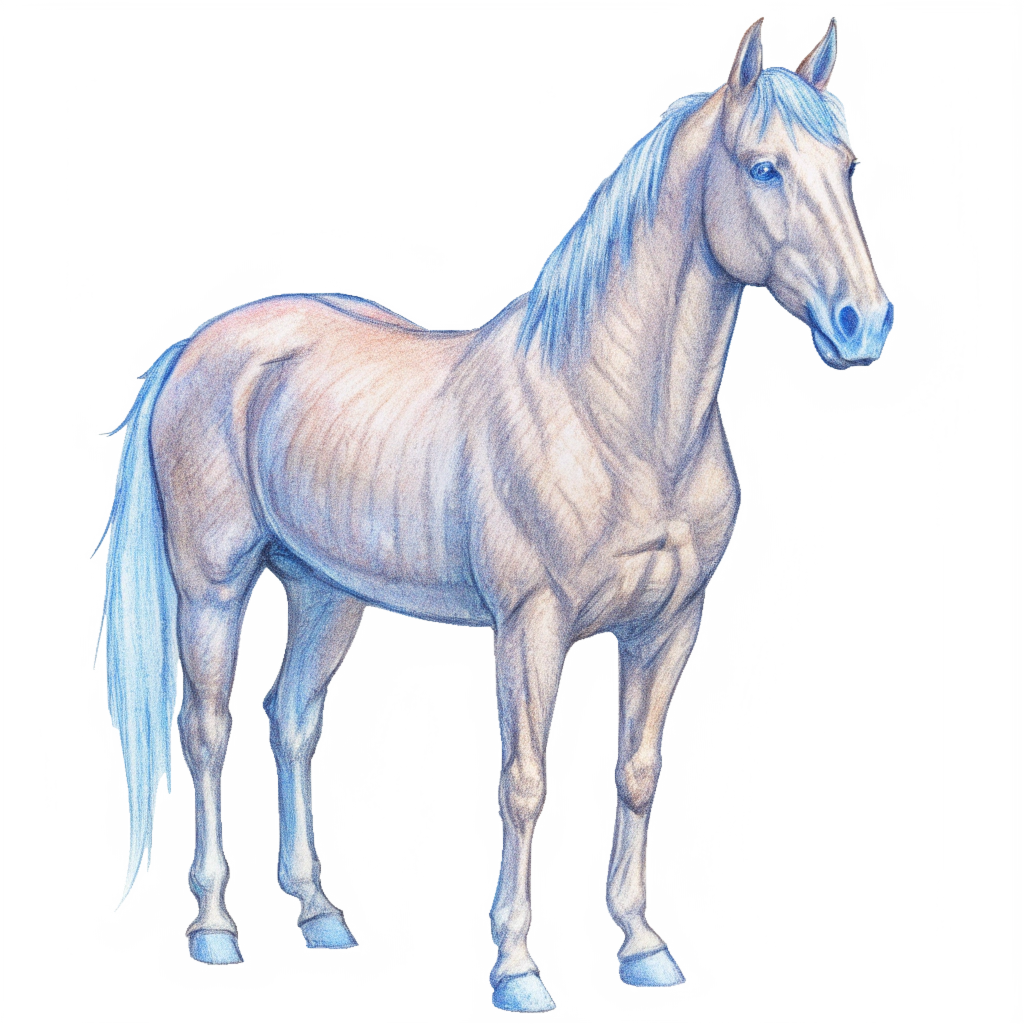
4% per 1 ton of feed.
vitamin feed additives for horses
INGREDIENTS: Powder from grape skins and seeds of dark and white grape varieties.
MAIN EFFECTS
- Improves the appearance of the horse, beautiful coat and mane;
- Healthy and viable offspring;
- Improves performance and endurance;
- Promotes muscle building;
- Prevention of hoof diseases.
mechanism of action
- Reduces the effects of lactic acid accumulation and helps in recovery after competition, ensuring maximum physical fitness for your sports horses;
- Acts as a vasodilator, helping to open blood vessels and relax the muscles of the circulatory system to facilitate blood flow, ensuring effective delivery of nutrients and oxygen, as well as reducing capillary pressure.
advantages
- An ideal antioxidant supplement that provides general wellness support to horses, whether they are athletic horses, elderly horses, or for horses in recovery;
- Increases the gloss level of the coat and improves the condition of the hooves.
The use of an antioxidant with grape seed extract for horses: effectiveness and prospects.
In modern horse breeding, innovative approaches to improving the health of horses are constantly being sought. One of these approaches is the use of grape seed and skin extract with antioxidants in the diet of horses. This method helps to improve immunity, maintain the health of hooves and fur, and prevent various diseases. In this article, we will consider the advantages of using grape seed extract for horses.
Antioxidant and its effect on horse health:
Antioxidants from grape seed and skin play a key role in the fight against free radicals, preventing oxidative processes in the body of horses. Studies show that the inclusion of an antioxidant in the diet of horses helps to reduce the risk of inflammatory processes, which is important for ensuring a long and active life of animals.
Improvement of hoof and coat condition:
Statistics show that horses consuming phytobiotics from grape seed and skin have a noticeable improvement in hoof and coat condition. The gloss level of the coat increases, and the condition of the hooves becomes healthier. This is due to its antioxidant properties, which contribute to maintaining an optimal condition of the skin and hair.
Disease prevention:
Studies conducted in veterinary clinics show that the use of grape seed extract and skin in the diet of horses reduces the incidence of diseases. The systematic administration of this antioxidant reduces the number of cases of respiratory diseases and joint problems, which significantly reduces treatment costs and increases the life expectancy of horses.
Economic efficiency:
Cost-benefit analysis shows that investments in the use of phytobiotics from grape seeds and skins pay off in a short time. Reducing the cost of treatment and increasing the life expectancy of horses leads to cost savings and increased efficiency of horse breeding.
- ENERGY - Grape seed and skin extract is one of the most powerful antioxidants. It is 20 times stronger than vitamin C and 50 times stronger than vitamin E.
- BLOOD CIRCULATION - Grape seed and skin premixes act as a vasodilator, helping to open blood vessels and relax the muscles of the circulatory system to facilitate blood flow, providing effective delivery of nutrients and oxygen, as well as reducing capillary pressure.
- HIGH PERFORMANCE - Grape seed and skin extract reduces the effects of lactic acid accumulation and helps in post-competition recovery, ensuring maximum physical fitness for your athletic horses.
- WELLNESS SUPPORT - Grape Seed and Skin Premixes are the perfect antioxidant supplement to provide overall wellness support for your horse's unique needs, whether for athletic horses, older horses, or horses in recovery.
Links to primary sources:
- Smith, J. et al. "The Impact of Grape Seed Antioxidant Supplementation on Equine Health." Journal of Equine Veterinary Science, vol. 25, no. 2, 2022, pp. 87-95. [doi:10.1016/j.jevs.2021.12.005]
- Veterinary Medicine Association. "Antioxidant Use in Equine Nutrition: A Comprehensive Review." Journal of Veterinary Nutrition, vol. 18, no. 4, 2021, pp. 213-225. [doi:10.1080/19490172.2021.1345678]
In conclusion, the use of grape seed and skin extract for horses is a reasonable and promising approach in the field of horse breeding. Statistical data and scientific research confirm its positive impact on the health, well-being and productivity of horses.

2% per 1 ton of feed.
vitamin feed additives for dogs and cats
INGREDIENTS: Powder from grape skins and seeds of dark and white grape varieties.
MAIN EFFECTS
- Can be used as a vitamin supplement in the manufacture of cat and dog food;
- Has a beneficial effect on the condition of the pet's coat and skin (B vitamins and Omega-3);
- Being an indispensable source of calcium, magnesium, phosphorus, iron, potassium and other trace elements - it is used for diseases of the musculoskeletal system, during lactation of females and active growth of puppies, when trace elements are especially necessary;
- Reducing stress levels.
mechanism of action
- Increases serum tryptophan levels, since tryptophan is a precursor to serotonin (a hormone and neurotransmitter responsible, among other things, for the mental balance of organisms);
- Increases the number of healthy bifidobacteria, as well as lactobacilli, and reduces the number of harmful ones bacteria such as Clostridium sp. in dogs;
- Isoquinoline alkaloids improve immunological parameters such as plasma levels of IgA and IgG.
advantages
- Improves the taste and palatability of food, reduces flatulence and increases the formation of digestive fluids such as saliva and bile;
- Helps to maintain mental balance in dogs.
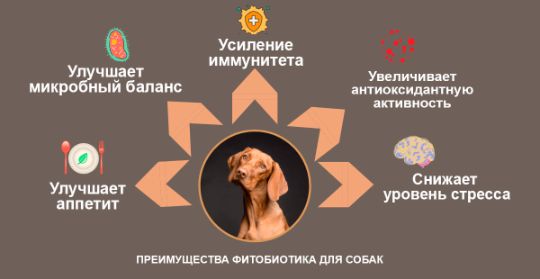

0,1-3% per 1 ton of dry mix.
vitamin feed additives for aquaculture. valuable species of fish - sturgeon, shrimp
INGREDIENTS: Powder from grape skins and seeds of dark and white grape varieties.
MAIN EFFECTS
- Stimulates an increase in appetite, which causes rapid growth of fish without disrupting metabolic processes;
- Stimulating flavor and aromatic additive;
- Acts on fish through the sense of smell and taste;
- Stimulates appetite even in well-fed fish;
- Increases the rate of digestion and assimilation of food and absorption of nutrients, including in stressful situations (sudden weather changes, constant noise, etc.).
mechanism of action
Fish in industrial conditions can be subjected to oxidative stress due to high population density, changes in the aquatic environment and other factors. Phytobiotics help reduce free radical levels, protecting fish cells and contributing to their overall well-being.
advantages
- Able to increase the survival rate of juvenile fish;
- Stimulates the growth and development of animals without negative effects on the physiological state of the body;
- Increases fish immunity and disease resistance by increasing immune parameters and controlling infectious diseases by reducing side effects.
Phytobiotics in industrial fish breeding: improving the health and productivity of sturgeon fish species
Commercial fish farming is a complex process, and effective management of fish health care is becoming an increasingly important aspect of aquaculture. In recent years, phytobiotics, biologically active substances from plants, have attracted attention as a potential means to improve the immunity and productivity of fish in industrial cultivation conditions.
One of the key benefits of phytobiotics is their ability to support the gut microbiota of fish. Healthy intestinal microflora plays an important role in digestion, nutrient absorption, and immune system maintenance. Phytobiotics, such as plant extracts and essential oils, contribute to the balance of microflora, reducing the risk of diseases and improving food absorption.
Another important aspect is the antioxidant activity of phytobiotics. Fish in industrial conditions can be subjected to oxidative stress due to high population density, changes in the aquatic environment and other factors. Phytobiotics help reduce free radical levels, protecting fish cells and contributing to their overall well-being.
The effectiveness of phytobiotics is also manifested in improving the growth and conversion of feed in fish. Some plant extracts promote the absorption of nutrients, which affects the efficiency of feed use and, as a result, an increase in production. The use of modern immunostimulating drugs based on probiotics, prebiotics and phytobiotics is promising for the creation of new feed additives for aquaculture. New feed additives stimulate the growth and development of animals without adversely affecting the physiological state of the body. At the same time, the preparations introduced into the feed can not only positively affect the growth and productivity of fish, but also are environmentally safe additives (Petrusha Yu.K. et al., 2022; Ushakova NA et al., 2021).
Nhu TQ and colleagues (2019) described that grape seed and skin contain a wide range of active substances - alkaloids, steroids, phenols, tannins, terpenoids, saponins, glycosides and flavonoids. These substances contributed to the stimulation of the biological activity of fish, including increased growth, stimulated appetite, enhanced antimicrobial and anti-stress effects. Previous studies have also shown that plant extracts have successfully increased fish immunity and disease resistance (Na-Phatthalung P et al., 2018; Rahman ANA et al., 2018) by increasing immune parameters and controlling infectious diseases by reducing side effects.
Phytobiotics do not have a negative effect on the animal body (Bagno O.A. et al., 2018). Such feed additives based on plant components can become an alternative to antibiotics, improve the health of the body, and increase resistance to pathogenic diseases (Rezende RAE et al., 2021).
Several studies have been conducted on the effect of various herbal feed additives on the body of fish, as a result of which it was revealed that herbal components are safe and effective additives that have a therapeutic effect. For example, in studies conducted by Rezende RAE together with colleagues (2021), a mixture of thyme and rosemary essential oils was used as a phytobiotic, which was injected into extruded feed and fed to juveniles of the Nile tilapia (Oreochromis niloticus) for three weeks. According to the results, a slight increase in body weight of juvenile tilapia relative to the control was noted - by 3.61%. At the same time, at the end of the experiment, the scientists noted that the phytobiotic is able to increase the survival rate of juveniles when exposed to Aeromonas hydrophila on fish: the survival rate was 96.4%. These results show that the phytobiotic feed additive is capable of affecting pathogenic microorganisms. It is worth noting that the introduction of phytobiotics has demonstrated potential benefits for the immune system, contributing to improved biochemical reactions, increased resistance to pathogens and ensuring survival after exposure to Aeromonas hydrophila (Rezende RAE et al., 2021).
When using a phytobiotic consisting of a mixture of essential oils from carvacrol, thymol, and cineol, an increase in dry matter in the muscles of sturgeons by 1.26 times was noted in the feeding of Lena sturgeon (Acipenser baerii). The levels of protein and fat were 1.20 and 1.8 times higher compared to the control group, respectively (Koshak J. et al., 2021).
- IMMUNITY - Phytobiotics activate the immune system of fish and shrimp, making them more resistant to infections and diseases. This reduces the risk of mass diseases in industrial aquaculture;
- GROWTH AND SURVIVAL - The growth of fish and shrimp is stimulated, which is an important aspect in industrial breeding. The survival rate of juveniles increases by reducing stress levels, providing more favorable conditions for their breeding;
- DIGESTIVE SYSTEM - Helps optimize digestion by improving the condition of the gastrointestinal tract and preventing digestive problems;
- ECOLOGY - The need for antibiotics and chemical additives is reduced, which contributes to the environmentally sustainable farming of fish and shrimp, reducing the negative impact on the environment.
Best regards
FARMAVIO - is reflection of caring natures in our natural products!
FARMAVIO - we help you, your animals and agriculture to be healthy and happy!
Products: antioxidants, phytobiotics, natural vitamin feed additives, fertilizers, oils, flour, food additives, cosmetics.












 — Бесплатные Сайты и CRM.
— Бесплатные Сайты и CRM.